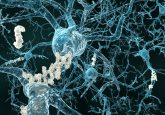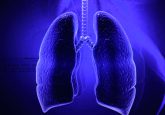Risk of breast cancer recurrence predicted by biomarker
Additional treatment on the cards for patients who, after tamoxifen treatment, exhibit high ratios of the two genes HOXB13 and IL17BR.
Research recently carried out by a group of researchers led by Dennis Sgroi completed the work in the Massachusetts General Hospital (MGH) Cancer Centre has discovered that estrogen-receptor-positive breast cancer patients who undergo the tamoxifen treatment could find out if they need further treatment with the aromatase inhibitor letrozole if they exhibit high ratios of HOXB13 vs IL17BR gene expression (i.e. HOXB13 is greater than IL17BR).
Sgroi and his team found that while many patients fitting the aforementioned criteria tended to remain cancer free for 5 years after primary treatment, an substantial number still had a large risk of recurrence 15 years or more down the line. The study assessed the value of the HOXB13/IL17BR ratio with prognosis and the identification of potential patients for the extended letrozole treatment.
The investigation involved the analysis of tumor samples and data from patients in the placebo-controlled MA.17 trial. Out of the 83 patients who had recurring tumors during the trial period, 31 were given letrozole and 52 were administered the placebo. There were a further 166 patients who did not experience any recurrences, of which 91 received letrozole and 75 received the placebo. The researchers learnt that a high HOXB13/IL17BR ratio predicted an increased risk of tumor recurrence, which dropped dramatically with the intake of letrozole.
Sgroi states that the discovery, “should allow many women to avoid unnecessary extended treatment.” The co-author of the report, Paul Goss, Director of the Breast Cancer Research Program at the MGH Cancer Center, continues, “This discovery means that about 60% of women with the most common kind of breast cancer can be spared unnecessary treatment with the concommitant side effects and costs. But more importantly, the 40% of patients who are at risk of recurrence can now be identified as needing continued therapy with letrozole, and many will be spared death from breast cancer.” Both researchers note that their work requires corroborating from further studies before the findings can be integrated with clinical practice.
Source: Biomarker predicts risk of breast cancer recurrence.






